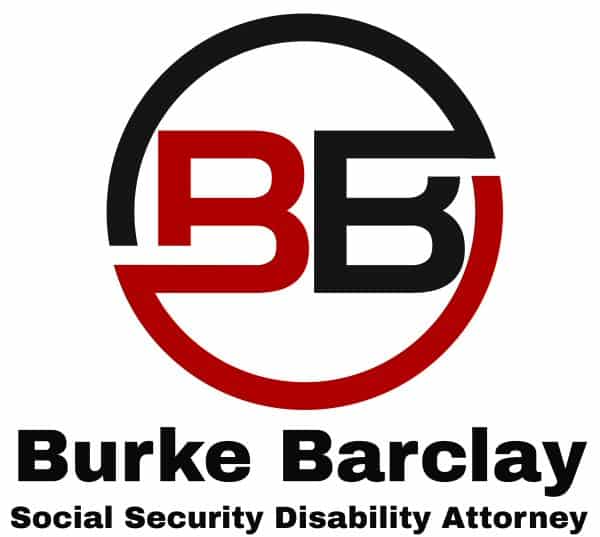How Social Security Determines Disability
Being disabled does not mean you have a condition or impairment which keeps you from working.
In fact, if you are telling yourself you are too sick or impaired to work, it’s likely you could find yourself on the losing end of your application for disability benefits. If you’re reading this blog, you’re probably searching for answers as to what to do next now that you just received your first or even second denial.
Don’t fear. You just need to understand what it means to be disabled under the rules established by the Social Security Administration.
First, being disabled really means that there are no jobs within the national economy you would be capable of performing even with your impairments. To put it another way, due to your condition or impairments, there would be no jobs within the national economy you would be physically and/or mentally able to perform.
So, how does the Administration determine this?
First, Social Security uses a five-step sequential process in order to determine whether you are disabled. It is sequential, in that if you fail at any step (other than Step 3), you cannot move onto the next step and your case will be denied. Second, all the steps must be satisfied (other than Step 3) in order to be approved.
Here are the steps without going into any detail:
1. You are not engaging in Substantial Gainful Activity;
2. Your condition is severe;
3. Your condition or impairment meet a Medical Listing;
4. You are unable to do any past relevant work; and
5. You are unable to do any other kind of job.
Step 5 is always the step where most people are denied. Take for example, a person that has worked his or her whole life at a certain job. Well, if that person cannot do the job he or she has done in the past, there may be other kinds of work available due to his or her education or acquired job skills, even despite their ailments.
In order to determine whether or not Social Security will deem you able to work at some other kind of job, ask yourself these questions:
1. How old am I? -If you are younger than age 50, then your case will be more difficult to win. The Administration understands that as we age, less jobs become available to us. Employers often do not like to hire older workers (for a number of reasons). Suffice it to say, understand that the older you are the less difficult it is to win your Social Security disability case. (I used the term “less difficult” rather than “easy.”)
2. What is my education level and when did I acquire that degree? The more recent you graduated from school, the easier it is for you to use those skills. The longer it has been since you graduated, the more those skills become irrelevant in an ever-changing workforce. Also, the more education you have, the harder it is to convince the Administration you are unable to work. For one reason, the more educated you are, more sedentary-type work is available rather than having to settle for a physically demanding jobs. Basically, you can use your brain rather than your body to accomplish work requirements.
3. What skills have you acquired over the past 15 years? If you have intangible skills such as; management, leadership, accounting, computer, financial, organizational, book keeping, sales, etc., skills, the more likely you can do some other type of work despite your impairments. If you have only worked at unskilled labor positions most of your life, then it may be easier for you to win your disability benefits.
4. What are your physical limitations? Can you honestly sit for two hours at a time, or a total of six hours per day? Can you at least stand or walk for short intervals? Can you lift such things as file folders and carry them around an office? If you can do sedentary-type work like this, then it is likely the Administration will determine you are able to work.
5. What mental limitations do you have? Can you at least follow simple, one and two-step instructions, and carry them out? Do you have concentration issues? Are you able to get along with other co-workers and the general public? Can you at least keep some type of regular schedule without your mental limitations interfering? If you can, then you may find your disability case being disapproved.
These are just some of the questions you need to be asking yourself. If you do have to go to a hearing, oftentimes the judge will point blank ask you, “John, why do you feel you cannot at least do some type of sedentary work eight hours per day, five days per week?” You may find that you have a tough time answering this question.
We represent Claimants throughout Texas and California fighting for their Social Security disability benefits. Feel free to always contact us at: (888) 780-9125.
You Need an Experienced Social Security Disability Lawyer
We represent claimants fighting for their Social Security disability benefits throughout Texas and California. Contact the Law Office of Burke Barclay for a highly experienced Social Security Disability Lawyer in Dallas, Texas
"Experienced Social Security Disability Lawyer representing clients throughout the United States who either need to initially file for their Social Security disability benefits or have been denied at one of the various stages throughout the process to give them the best chances of success."
Business Address
3838 Oak Lawn Ave.
Suite 1000
Dallas, TX 75219
Business Phone
Business Hours
Monday - Friday
8:00 AM - 5:00 PM





